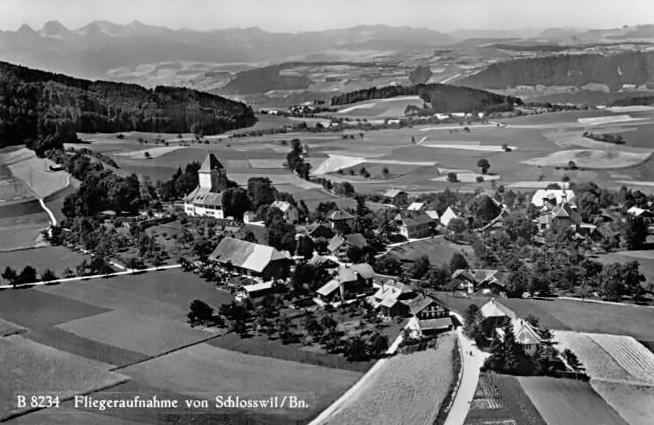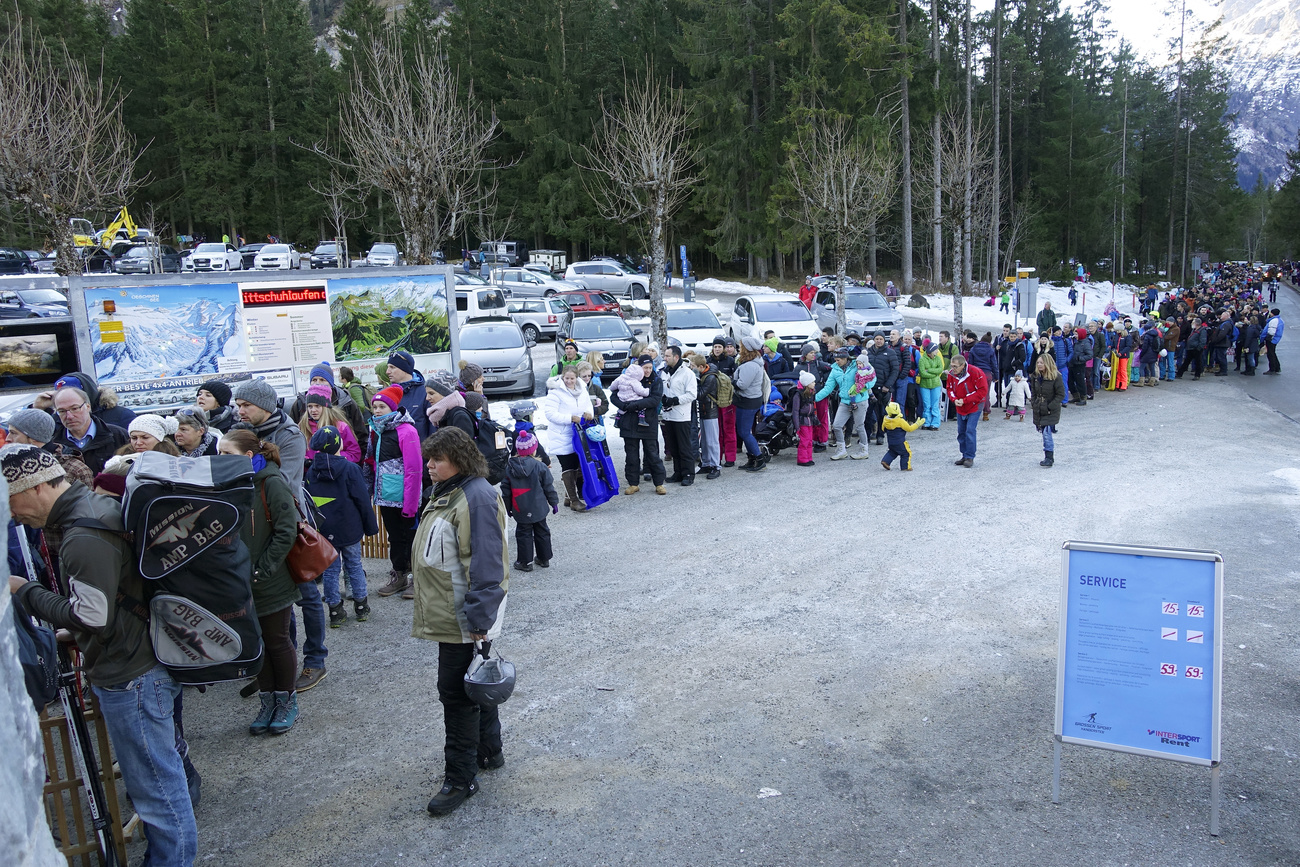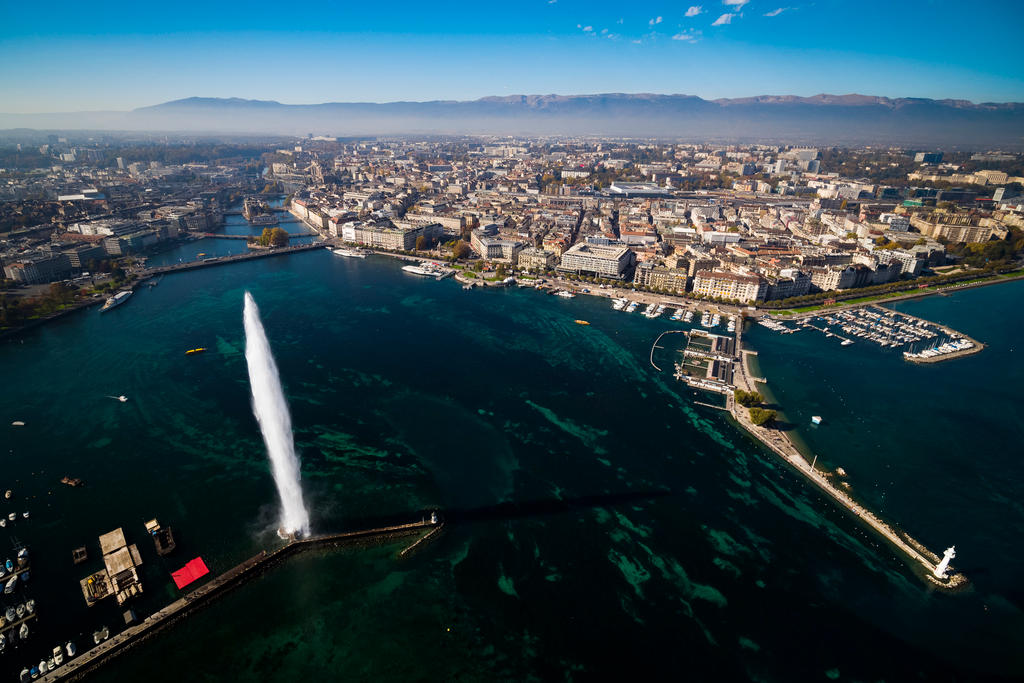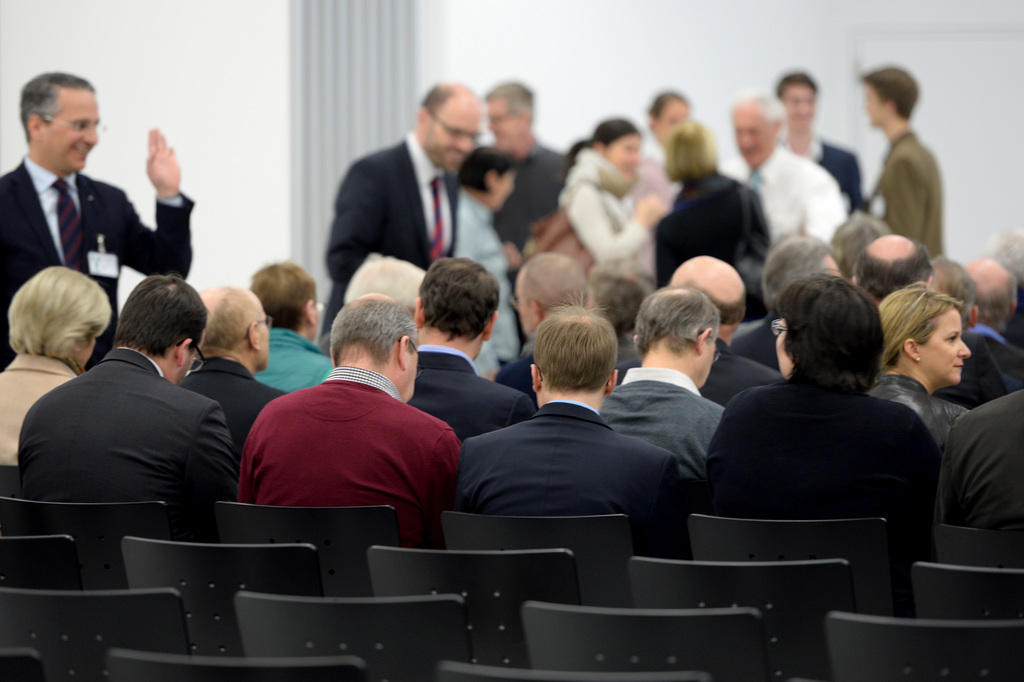Life as a part-time local Swiss politician

Politics as a part-time job: That’s the idea of the militia system. Thousands of Swiss officials have a normal occupation and do politics on the side. The militia system creates a permeable border between politics and voters. But in practice it’s a stretch.
During the day, Markus Geist is a manager at the Swiss Federal Railways in Bern. After work, he drives home to study zoning plans or chair community meetings.
Geist is the vice mayor of Grosshöchstetten, a town west of Bern with about 3,500 people. This makes him one of the thousands of Swiss holding political office in addition to a job. Geist also served as the mayor of the neighbouring municipality of Schlosswil, population 630. But Schlosswil no longer exists as a municipality – it merged with Grosshöchstetten at the beginning of 2018.
The combination of a profession in parallel to local politics is the core of the Swiss militia system. This forms the basis of Swiss politics not only at the municipal, but also at the cantonal and national levels.
Weaknesses
At least in theory. For at the gateway to the hilly Emmental region, the weakness of the militia system is evident. In Schlosswil it is becoming increasingly difficult to find enough people to fill the public offices, says Geist.
This small community is anything but an isolated case. Geist himself was asked whether he wanted to run for the municipal council ten years ago, and he agreed. But not everyone has the time or the desire to cope with building permits or school regulations in the evening after work.
“Year of militia work”
The association representing the 2,212 communes in Switzerland has chosen 2019 as “Year of militia workExternal link”.
Events are planned throughout the year, including several debates between democracy experts and the public. Several publications are planned, including the book “Militia work in Switzerland”, due out in May.
As a media partner, swissinfo.ch plans to regularly publish articles on this subject during 2019.
This is one of the reasons behind the merger of this small community with its bigger neighbour. In recent years, the number of communes in Switzerland has shrunk from 3,100 in 1950 to 2,212 at the beginning of this year.
The Swiss militia system of governance, run by citizens from different backgrounds, contrasts sharply with the idea of a state led by the elite – as put forward by the Greek philosopher Plato.
In Switzerland, the idea behind local leaders also practicing a profession prevents the emergence of a “political class”, which is evident in countries like France. The boundary between politicians and the citizens should remain permeable. The idea behind this principle is similar to the direct democracy system: responsibilities are shared by citizens, and not just a few professionals.
Nonetheless, the fact remains that many local Swiss communities are under threat. And like Schlosswil, many struggle to find new leaders. According to a recent surveyExternal link, 50% of Swiss commune secretaries say it is extremely difficult to fill local political jobs.
Death of Swiss communes
When it was founded in 1848, Switzerland had 3,205 municipalities. This number remained practically unchanged until 1990.
At the beginning of 2019, there were still 2,212 communes. Within the last 30 years, almost 800 communes have disappeared.
The massive decline is the result of smaller communes merging together to solve financial and personnel problems.
But a negative consequence of community mergers is the decline in political participation, which has continuously fallen over the past 30 years.

In compliance with the JTI standards
More: SWI swissinfo.ch certified by the Journalism Trust Initiative











You can find an overview of ongoing debates with our journalists here . Please join us!
If you want to start a conversation about a topic raised in this article or want to report factual errors, email us at english@swissinfo.ch.